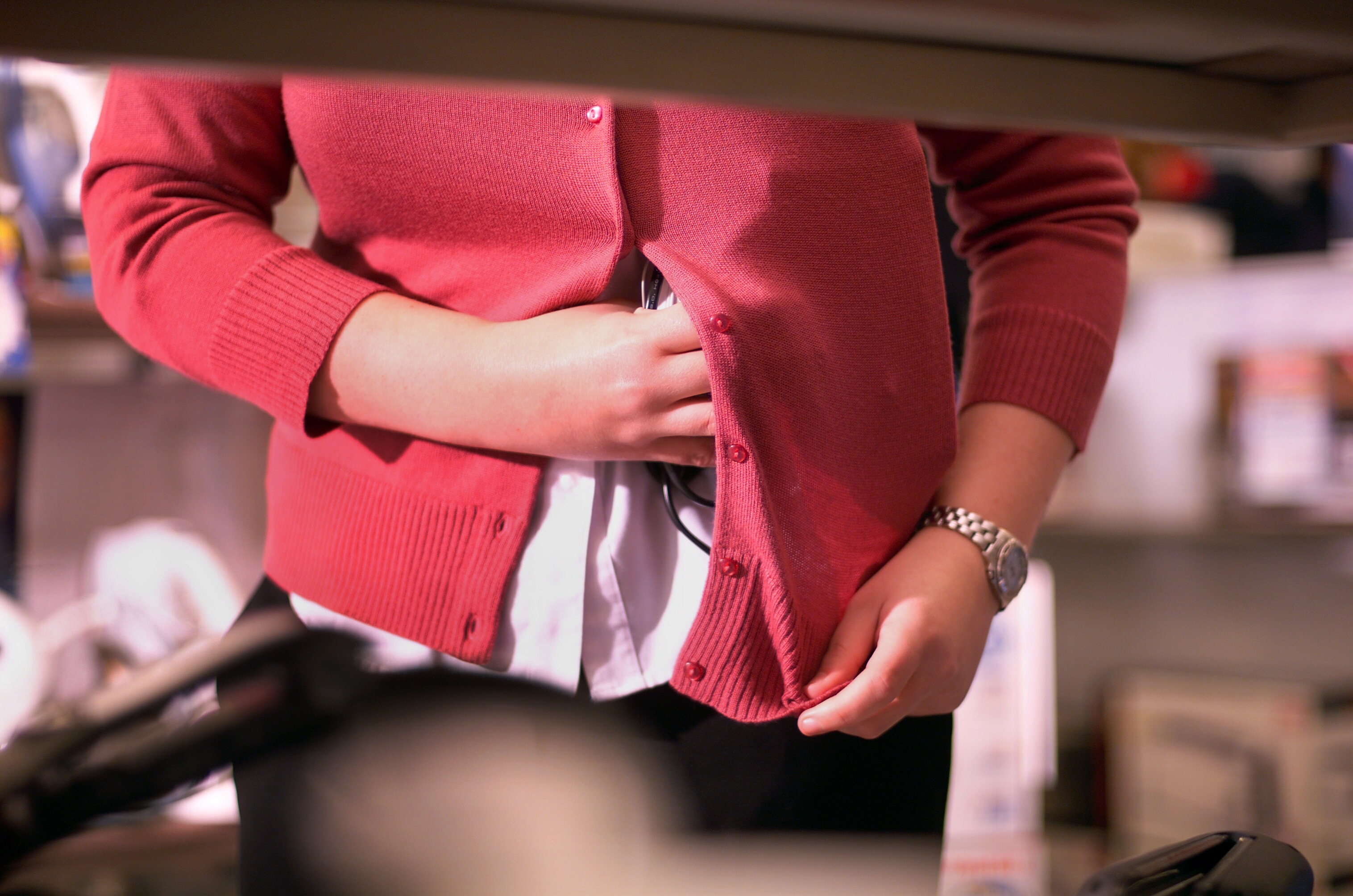What Is The Fine & Penalty For Shoplifting in NJ?
The fines for a shoplifting conviction are as follows: up to $1,000 for disorderly persons shoplifting, up to $10,000 for fourth-degree shoplifting, up to $15,000 for third-degree shoplifting and up to $150,000 for second-degree shoplifting.
| Value of Stolen Goods | Penalty Type | Maximum Fines | Maximum Jail Time |
|---|---|---|---|
| less than $200 | Disorderly Persons | $1,000 | 6 months |
| $200-$500 | Fourth Degree | $10,000 | 18 months |
| $500- $75,000 | Third Degree | $15,000 | 5 years |
| more than $75,000 | Second Degree | $150,000 | 10 years |
Can I Get My Shoplifting Charge Dismissed?

Yes. Although rare, your shoplifting charges can be dismissed outright. In order for this to happen, your criminal defense attorney may file a motion to dismiss the case on the grounds that the charge was merely a de minimis offense (i.e. NJSA 2C:2-11). This means that your conduct was too small and trivial to warrant a full trial and did not rise to the level warranting the charge. Additionally, if store employees and security guards fail to appear at your hearing, you will be able to ask for a dismissal. Most of the time, the judge will adjourn the case. However, if the employees do not show up a second time, there is a good chance that you can get your case dismissed.
What Can I Get My Shoplifting Charge Downgraded to?
If you are a first-time offender being charged with shoplifting in New Jersey, you can try to have the crime downgraded to merely a violation of a municipal ordinance. If you are convicted of violating a municipal ordinance, you will not go to jail, your fine will be less expensive, and you will not usually receive a criminal record. Also, a municipal ordinance can be expunged after 2 years while you would have to wait 5 years if convicted of shoplifting.
I Was Charged With Shoplifting, What Will Happen to Me on My Court Date?
Your very first court appearance is called an arraignment. You will be asked to enter your plea before the judge. Usually, in shoplifting cases, you will be entering your plea before a municipal court judge. (However, if the goods in question were valued at more than $200, you may have to appear in county criminal court.) If you have not been able to negotiate a plea with the prosecutor, you will have to plead not guilty. It is highly recommended that you hire an experienced criminal defense attorney who can help you every step of the way.
What Happens if a Minor is Caught Shoplifting in New Jersey?
Juveniles who are accused of shoplifting can be taken into custody for a “reasonable” amount of time. Hearings for juvenile shoplifting crimes are usually held in New Jersey’s family court system. A “minor charged with shoplifting in New Jersey can end up in a juvenile detention facility. Shoplifting goods valued at less than $200 can mean spending up to six months in detention (disorderly persons offense); for goods valued between $200 and $500 it can mean up to one year in detention (fourth-degree crime); for goods valued between $500 and $75,000 it can mean up to two years in detention (third-degree crime); and for goods valued at more than $75,000 it can mean up to three years in detention (second-degree crime).
What Must the Prosecutor Prove in Order to Convict Me of Shoplifting?
In order for the prosecutor to establish a strong case for shoplifting in NJ, he must successfully prove that you:
- Were seen approaching merchandise
- selected the merchandise
- concealed, carried away, or converted the merchandise
- were in continuous observation by the merchant or another witness
- failed to pay for the merchandise
- were approached by the merchant or a security officer outside the store
Can I be Charged with Shoplifting Even if I Did Not Take Merchandise?
Technically, yes. New Jersey recognizes five different forms of shoplifting:
- Purposefully Taking Merchandise
- Concealment of Merchandise
- Altering or Transferring a Price Tag
- Transferring Merchandise to Another Container
- Under-Ringing of Merchandise
This means that in any of these five scenarios, whether you walk out of the store with merchandise or not, you can be charged with and convicted of shoplifting.
What Happens if I Accidentally Walked Out of the Store With an Item?
 In this situation, it would not be shoplifting. Since all five recognized modes of shoplifting involve some level of intent to deprive the owner of either the property or the value of the property, simply forgetting that you had an item in your hands cannot truly count. However, if the surrounding circumstances indicated that you had intent, you may end up facing charges (e.g. realizing you had the goods, but not walking back into the store to return them). The upshot of this is when an innocent person accidentally walks out of the store with something he did not even intend to walk out with and is apprehended by security officers. In a case like this, we may feel as though we must prove our innocence more so than relying on the phrase “innocent until proven guilty.” Therefore, to avoid even this situation, make sure that you are ever-cognizant of what you have in your hands when you leave a store.
In this situation, it would not be shoplifting. Since all five recognized modes of shoplifting involve some level of intent to deprive the owner of either the property or the value of the property, simply forgetting that you had an item in your hands cannot truly count. However, if the surrounding circumstances indicated that you had intent, you may end up facing charges (e.g. realizing you had the goods, but not walking back into the store to return them). The upshot of this is when an innocent person accidentally walks out of the store with something he did not even intend to walk out with and is apprehended by security officers. In a case like this, we may feel as though we must prove our innocence more so than relying on the phrase “innocent until proven guilty.” Therefore, to avoid even this situation, make sure that you are ever-cognizant of what you have in your hands when you leave a store.
What Happens if I get caught Shoplifting and They Let Me Go?
There are several possible reasons why a store would let someone go without asking him/her to sign papers or turning the accused over to the police. One is that the manager or owner simply doesn’t want the hassle. Another is that the store already has the accused’s information, in which case it could choose to send a summons in the mail.
Regardless of the reason, a person should never admit to shoplifting, even to friends and family members, as this information could be later used against him/her in a trial or civil case.
What is the Statute of Limitations for Shoplifting?
The statute of limitations to charge someone with shoplifting depends on the value of goods in question. Shoplifting of goods valued at under $200 is a disorderly persons offense, so the statute of limitations is one year from discovery of the offense. Shoplifting goods valued at more than $200 is an indictable offense (felony), and as such the statute of limitations is five years. Check out our page on New Jersey statutes of limitation for more information.
I received a civil demand letter after shoplifting. Do I have to pay this?
Most likely. Large department stores (Target, WalMart, Kohl’s, etc.) sometimes send letters to accused shoplifters demanding money “or else” charges will be pressed. This letter is legal and the store is entitled to recoup the loss of any shoplifted goods, as well as damages associated with the loss (although those can sometimes be difficult to prove) and a civil penalty. However, a person should never just pay the amount requested without first speaking to an attorney. An attorney may be able to negotiate the amount or determine that a person would be better off fighting the charges in court. The bottom line: Do not respond to this letter without speaking to an attorney.
Can I get my New Jersey Shoplifting Conviction Expunged?
Shoplifting expungement eligibility in New Jersey depends on a variety of factors. Shoplifting is an expungable offense. A person who has not already filed for an expungement or who has not been convicted of more than one indictable offense (felony) is likely to be eligible. Read our New Jersey expungements page for more information and then call one of our expungement attorneys to discuss the details of your case.










 888-815-3649
888-815-3649
